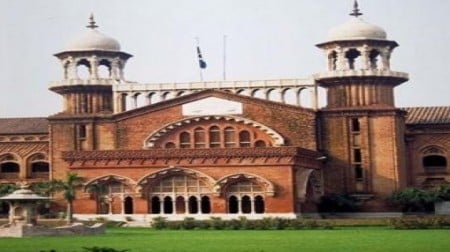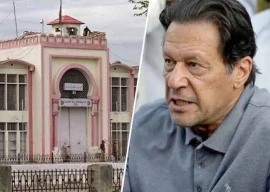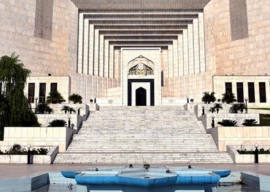
The Lahore High Court (LHC) has urged the provincial government to take stringent measures to prevent the establishment of housing societies on agricultural land, emphasising the need for sustainable development to avoid an unhealthy environment.
The court also mandated the installation of water treatment plants for all new 10-marla houses.
These observations were made by Justice Shahid Karim during the hearing of multiple petitions focused on controlling smog, promoting a pollution-free society, and protecting groundwater resources. Advocate General Punjab, Khalid Ishaq, briefed the court on the government's efforts to combat worsening smog conditions, highlighting the planned introduction of electric buses in the province next year as a testament to its commitment to environmental preservation.
Justice Karim stressed the importance of forming a long-term smog control policy and suggested that discussions with the Chief Minister of Punjab should be initiated upon her return to the country.
He underscored the urgency for concrete measures to eliminate smog and admired the government's initia-tive to deploy electric buses, calling it a positive step.
AGP Ishaq noted that the government has allocated a budget for electric buses, set to be operational by June next year. He also informed the court about ongoing projects related to food security and rainwater conservation.
Justice Karim further observed that the government should publicly discourage the conversion of agri-cultural land into housing societies. In response, AGP Ishaq mentioned that the administration is currently working on amendments to the Land Acquisition Act.
On the topic of water conservation, Justice Karim recommended expanding the use of water-preserving plants to help maintain the groundwater table.
The court was informed that work on urban forestry is underway, with a report due in March.
The AGP assured the court that continuous monitoring is being carried out to enhance these measures.
The LHC has adjourned the hearing until next week, urging the government to draft a comprehensive 10-year policy to address smog and its root causes. Justice Karim suggested that limiting wedding functions to one event with a one-dish policy could be beneficial for smog reduction and reducing social inequalities.
Justice Karim pointed out that transportation contributes 70% to 80% of air pollution and stressed that significant progress could be made if smoky vehicles and school bus issues are addressed.
He highlighted the need for long-term strategies, stating, "Short-term policies will not work; we must think ahead for the next year starting now."
Justice Karim expressed concern that this year, smog had set in as early as September and warned that it could begin even earlier next year, urging collaboration with the federal government. He criticized the emissions from government-operated Speedo buses and called for stricter enforcement to keep smoky vehicles off the roads.
AGP Ishaq revealed that a task force has been established to address the issue and mentioned plans to close marriage halls in November and December next year as part of broader anti-smog measures.
Justice Karim recommended deploying Dolphin police to enforce vehicle regulations and reiterated that private schools should use their own buses to minimize smog-related issues. On the matter of construction projects, including the Ravi Urban Development Authority (RUDA) initiative, Justice Karim reminded the court that oversight of such projects is a governmental responsibility.
During the proceedings, a lawyer representing market associations requested that shops remain open until 10pm.
Justice Karim responded, emphasizing the urgency of the situation, noting, "Shops close at 5 PM in many parts of the world, but in Pakistan, people continue their activities late into the night."
He suggested that decisive action is needed, drawing parallels to Beijing's relocation of industries out of urban areas and advocating for similar coordination with the federal government.
The hearing concluded with strong calls for sustainable and coordinated measures to curb smog and pro-mote public health.



1725443747-0/Untitled-design-(5)1725443747-0-165x106.webp)














COMMENTS
Comments are moderated and generally will be posted if they are on-topic and not abusive.
For more information, please see our Comments FAQ